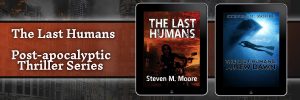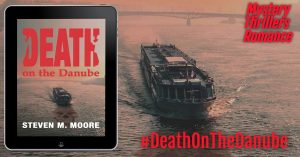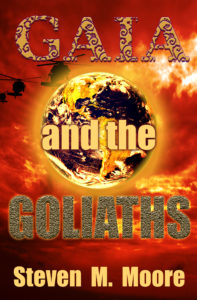“Friday Fiction” Series: 2035…
February 19th, 2021[Note from Steve: When I posted this short story in 2017, I already feared the turn to fascism I saw going on in the US under the leadership of Donald J. Trump—the US was looking a lot like 1930’s Germany! I meant the story as a warning then, and it’s even more of a warning now—the date might even have to be adjusted down a bit because the US looks even more like 1930s Germany; Trump wasn’t convicted! Although their leader is hopefully gone for good, and independent of those impeachment trial results, there are still too many fascists masquerading as conservatives who are calling for civil war and the execution of government leaders, accusing the latter of treason. The attack on the Capitol is only one manifestation of a political plague that’s just as dangerous as the viral one—maybe even more so, because we have vaccines for the latter. Democracy is fragile. Like a delicate flower, it must be protected.]
2035
Copyright 2017, Steven M. Moore
Regional Governor Ricardo Sandoval kept one eye on the protests in the NADA capital of Atlanta as he answered his videophone, the red one he generally kept under lock and key. It needed a thumbprint and voiced password.
His counterpart, Regional Governor Desmonda Bailey, appeared on the screen.
“Yeah, I’m watching. NADA’s propaganda machine is whipping them into a frenzy. I’m more worried about the massing of troops on our borders. Our only recourse might be the battlefield nukes.”
“A last recourse, but I agree,” said Bailey. “Our small forces would be run over by those fanatics.”
“At least NADA’s generals have two fronts to divide their forces, but you’re at a geographical disadvantage, Desmonda. They can roll across the Adirondack chain a lot easier than the Sierras and our other western mountains. Maybe the sanctions weren’t such a good idea.”
“Nonsense. Their Great Leader started paying attention when we voted them in. They were a logical first step for trying to make him come to his senses. I don’t know what our next steps should be, but I’m not about to let him and his hordes overrun our Region.”
“I’m with you on that. But my security team warns that they might take out our satcom. We have to be prepared to act unilaterally unless we can agree on something now.”
“Let’s define some plans, old friend. My people warn me this could escalate fast.”
***
The two leaders worked for an hour and a half, coming up with plans that both the Eastern and Western legislatures would pass given the emergency. They worked from scenarios already prepared and studied, originating in the collaborative defense departments.
When they finished, Sandoval told his aid to call for his limo. The trip to the capital was walkable, but the limo was used to keep his security detail happy.
During the trip, which took more time loading and unloading of security personnel on each end than travel time, he went through some historical antecedents he might include in his speech.
Things had gone to hell fast beginning in 2017. That contentious election for president had unleashed pent-up hatreds that had smoldered for years, even decades. Perhaps inevitable, he thought. Reasoned discourse went the way of the dinosaurs.
One thing led to another. The country had already been divided between the East and West Coasts and the rest of the country, the so-called red and blue states, except in that election some blue ones had turned red and then became purple as they oscillated back and forth in future elections creating tremendous instability. People no longer wanted to discuss their politics and dedicated all their energies to hating the opposition. Eventually the Eastern and Western Civil Rights Regions were formed to reflect and protect the East and West Coast views while the rest of the country became the North American Democratic Alliance, or NADA, the use of the word “Democratic” being a déjà vu with the official name of East Germany used so many decades earlier.







